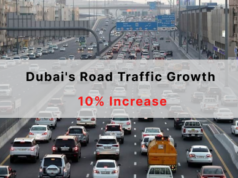Strategic Integration of Cybersecurity in Renewable Energy Dubai
With rapid advancements in renewable energy, Dubai has positioned itself as a leader in both sustainable energy and cybersecurity. Protecting these new assets from cyberattacks has become a top responsibility as the city moves toward clean energy. This blog explores how a safe and resilient energy future is being paved by Dubai’s creative approach to cybersecurity in renewable energy.
The Rise of Renewable Energy in Dubai
Dubai’s reliance on digital technologies is growing along with its renewable energy capability, which includes wind turbines and solar farms. These systems are vulnerable to cyberattacks because they oversee, monitor, and regulate the production and distribution of energy. Cybersecurity is a crucial part of Dubai’s renewable energy plan since a hack could interfere with energy supplies and have an impact on national security.
Why Cybersecurity is Vital for Renewable Energy
The reliance on digital technologies in Dubai’s renewable energy systems is growing along with its capacity, which includes wind turbines and solar farms. Because these systems oversee, monitor, and regulate the production and distribution of energy, they are vulnerable to cyberattacks. Because a breach might compromise national security and interrupt energy supplies, cybersecurity is a crucial part of Dubai’s renewable energy plan.
Key Strategies for Cybersecurity in Dubai’s Renewable Energy
- Enhanced Smart Grid Security
Dubai’s renewable energy policy is based on smart networks, which enable effective energy flow control. However, these grids are also vulnerable to cyberattacks. Dubai has used multi-factor authentication and sophisticated encryption to protect data transfers, and it has used artificial intelligence (AI) for predictive analysis to spot potential breaches. - AI-Driven Threat Detection and Response
Dubai has incorporated AI and machine learning into its cybersecurity procedures in response to the increase in cyberattacks that target vital infrastructure. Real-time monitoring made possible by these technologies allows for quick anomaly discovery and reaction. Predictive algorithms enable Dubai’s energy systems to foresee and prevent cyberattacks, ensuring system stability. - Blockchain for Data Integrity
Another cutting-edge technology that Dubai is implementing in its renewable energy sector is blockchain. Dubai can accelerate keeping of records, protect energy transactions, and confirm the legitimacy of green energy certifications by utilizing blockchain technology. Transparency and data integrity are guaranteed throughout the energy grid with this distributed ledger technique. - Collaborative Public-Private Partnerships
The government of Dubai works with academic institutions and private cybersecurity companies to provide advanced technologies specifically for renewable energy. By encouraging knowledge exchange, these collaborations improve Dubai’s capacity to counter particular challenges and guarantee that industry best practices are routinely implemented. - Rigorous Employee Training and Awareness
Human error is often a significant factor in cybersecurity incidents. Recognizing this, Dubai’s renewable energy sector has introduced rigorous cybersecurity training programs. Employees across the sector are educated on recognizing phishing attempts, securing data, and following cybersecurity protocols, thereby reducing risks linked to human error.
Cybersecurity Challenges in Renewable Energy
There are particular difficulties in protecting Dubai’s renewable energy infrastructure. Numerous renewable resources, like wind turbines and solar panels, are dispersed or situated in remote locations, making cyber and physical security challenging. Additionally, cybersecurity protections must constantly change to fend off emerging threats as energy systems become more automated and data-driven.
Future Outlook: A Cyber-Resilient Green Economy
As Dubai pushes forward with ambitious energy goals, cybersecurity in renewable energy will remain crucial. The city is committed to evolving its cybersecurity framework to address emerging threats, ensuring a sustainable and secure future for its citizens and businesses. Dubai’s investment in renewable energy cybersecurity not only supports its green initiatives but also positions the city as a leader in safe, smart energy transitions. As a model city in the Middle East, Dubai’s strategic integration of cybersecurity in renewable energy sets a high standard for urban sustainability and resilience.
For more details on Dubai’s energy goals and specific projects, refer to official sources like the Dubai Electricity and Water Authority (DEWA) or International Renewable Energy Agency (IRENA)
For more exciting updates on how technology is shaping our world, follow livedubaijobs.com.





